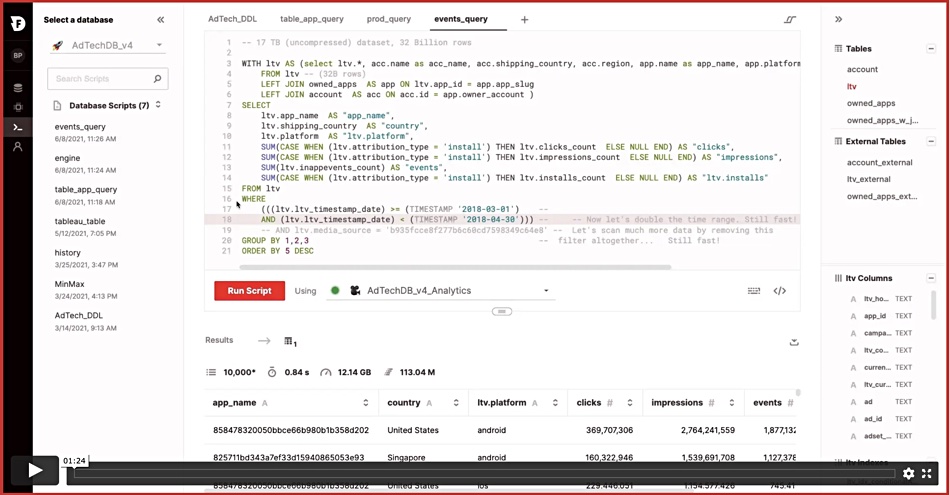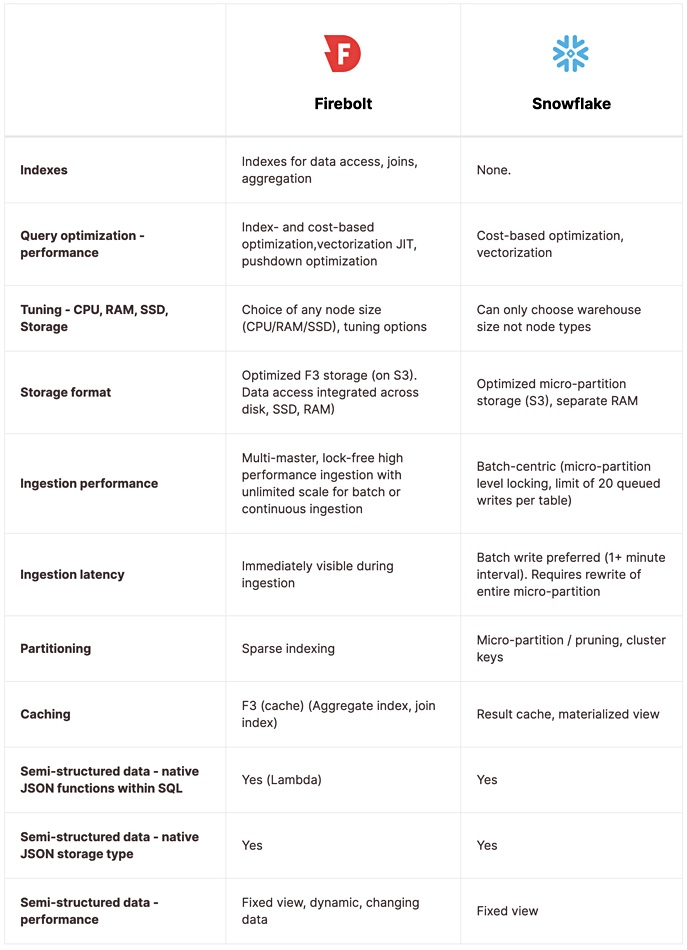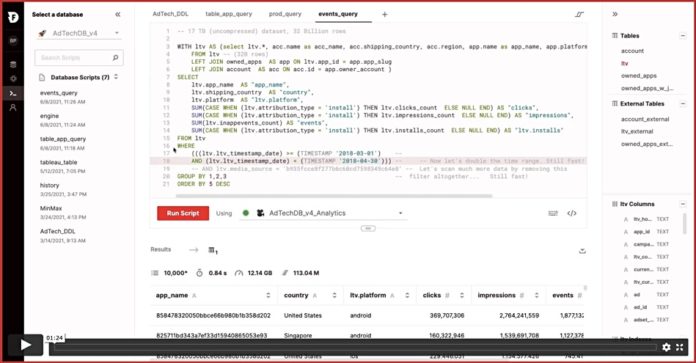Cloud data warehouse startup Firebolt has raised $127 million in B-round cash just six months after its A-round, signalling huge VC interest in analytics in the public cloud following Snowflake’s enormous $33.6 billion valuation IPO.
Firebolt is an Israeli business founded in 2019 by CEO Eldad Farkash and COO Saar Bitner. They raised $37 million in A-round funding in January this year based on their data warehouse-as-a-service serverless architecture software analysing semi-structured data through SQL faster than anyone else, with query results in less than a second. Compute is separated from the AWS S3 storage, providing independent scalability.
Farkash provided a prepared quote: “Companies are developing data applications more than ever before — which require a high level of performance that is not readily available. Firebolt takes out the gruelling pain from the entire process, making it possible for engineers to develop interactive data applications that deliver fast performance over extremely large data sets. Developers can finally develop data-related features at unheard-of speeds.”

The round featured fresh funds from all the existing investors — Zeev Ventures, TLV Partners, Bessemer Venture Partners, and Angular Ventures — and two new investors: Dawn Capital and K5 Global. Total funding sits at $164M and the new cash will be used to further expand Firebolt’s product, engineering and go-to-market teams..
It says its technology introduces a performance leap two orders of magnitude ahead of existing data warehouses, while needing less compute power. The claims are almost fantastic, with Firebolt said to be between 4000 to 6000 times faster than Snowflake, Redshift, Athena, and any other warehouse for individual queries in benchmarks by customers.

Source data is ingested from typical raw data formats (eg Parquet, Avro, JSON) and sorted, compressed, indexed and materialised into Firebolt’s proprietary file format, F3. It is indexed with sparse indexes which cover huge datasets and can be loaded into memory, making search fast. They enable reduced data loads of relevant rows from F3 to satisfy queries, reducing data IO time. SQL queries are also optimised and compiled for performance.
The query engine implements vectorisation and SIMD (single instruction, multiple data) concepts, applies query instructions to batches of column data instead of row-by-row, and also makes optimised usage of the CPU cache.
There are detailed feature, scalability and performance comparisons between Firebolt and Snowflake, Redshift, and Athena on the Firebolt web site. The tremendous speed advantage should ensure that Firebolt is not dismissed as yet another me-too Snowflake clone.








